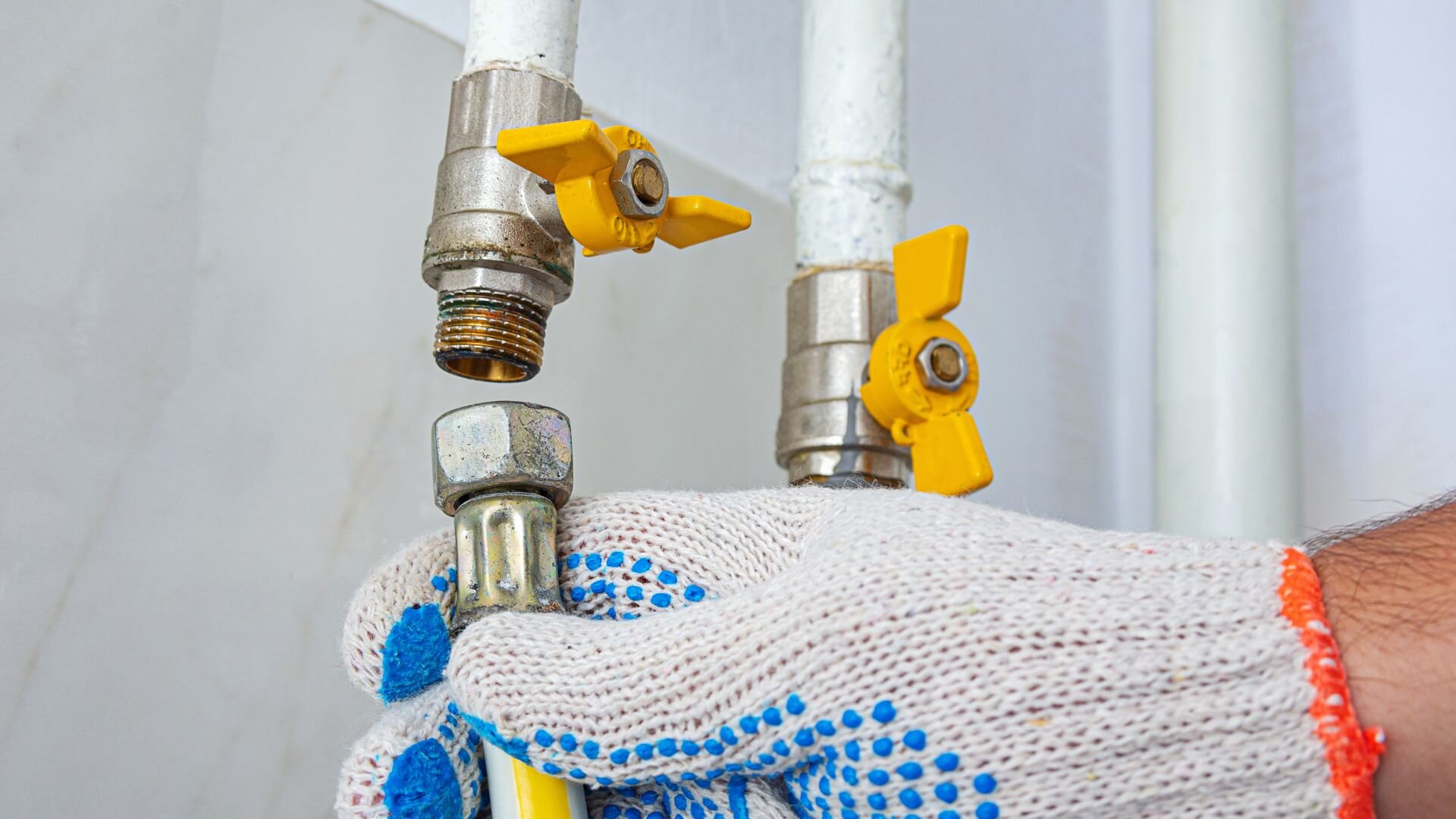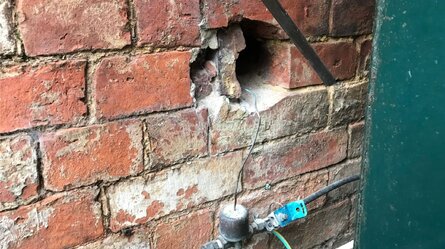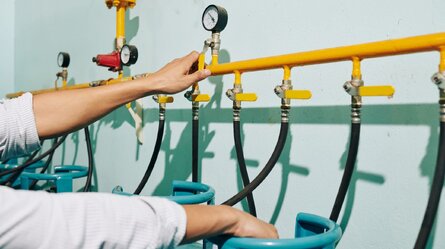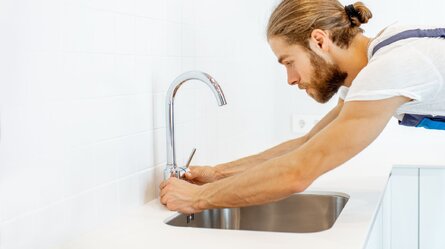According to Energy Safe Victoria, gas-related incidents still trigger dozens of emergency callouts yearly, many of which could have been avoided with simple, routine checks. Natural gas systems demand attention to stay safe and efficient, whether it’s a slow leak, a worn fitting, or a forgotten connection.
Neglecting gas points and appliances can lead to a cascade of problems: dangerous gas leaks, inconsistent gas supply, poor appliance performance, and worst of all, carbon monoxide exposure. A small oversight today could turn into a serious hazard tomorrow.
Understanding Gas Points and Their Role in Your Home
Gas systems are more than just the appliances you see. A safe, efficient setup starts with understanding how gas points and connections work together behind the scenes.

What Are Gas Points?
Gas points are the fixed outlets where gas appliances connect to your home’s energy supply. They allow controlled gas flow to stoves, BBQs, heaters, and other fixtures and serve as critical links between the appliance and the broader gas system.
Appliances vs. Infrastructure
- Gas appliances: Include cooktops, outdoor barbecues, hot water units and indoor heaters
- Supporting network: Comprised of gas lines and gas pipes hidden behind walls and under floors
Each component relies on the other to deliver safe, consistent energy.
The Importance of Safe Connections
Gas points act as central hubs. Over time, fittings can loosen or corrode, causing a drop in gas pressure or undetected gas leaks. Poor installation or aged infrastructure increases the risk.
Routine gas line maintenance is essential for ensuring:
- Proper appliance performance
- Stable gas pressure
- Long-term gas safety for your household
These checks support efficient fuel consumption and reduce risk across the entire network.
Signs Your Gas Lines Need Attention
Small issues in a gas line system can quickly lead to serious risks if left unchecked. Know the warning signs before they escalate.
1. Smell That Signals Trouble
A distinctive rotten egg smell is one of the clearest indicators of a leak. This artificial scent is added to liquid petroleum gas and colourless gas to detect leaks early. If you notice a rotten egg smell, act immediately.
2. Sounds You Shouldn’t Hear
A hissing noise near connections or gas pipes may point to escaping harmful gases. This can impact both gas pressure and the performance of gas heaters.
3. Bills That Don’t Add Up
Unexplained increases in energy bills can signal a slow leak or drop in efficiency within your gas line system.
4. Visible Clues Around the House
Look for rust, dents or discolouration on exposed gas pipes. Corrosion threatens gas line safety and may require immediate gas line repair.
Leaks can release carbon monoxide, a dangerous colourless gas. Early detection helps avoid exposure and prevent calls to emergency services.
Routine Visual Inspections: A Homeowner’s First Line of Defence
Staying on top of simple regular inspections can help prevent more dangerous situations from developing unnoticed. These quick checks support gas point maintenance and keep your home safer.
What to Check
Add these steps to your seasonal home checklist:
- Look for rust, corrosion or moisture on exposed gas pipes
- Confirm all appliances are firmly and properly connected
- Clear any dust or build-up around gas points or fittings
Always perform these tasks when appliances are off and cool to ensure safety.
Make It Routine
Regular check-ups take little time but go a long way in protecting your household. Integrating these steps into your usual cleaning or maintenance routine makes them easy to remember and complete.
Staying alert to visual changes helps avoid larger issues with appliances or fittings. Consistent care and observation reduce the risk of leaks, faults and unnecessary repair costs.
The Importance of Professional Gas Line Maintenance

Staying on top of simple regular inspections can help prevent more dangerous situations from developing unnoticed. These quick checks support gas point maintenance and keep your home safer.
What to Check
Add these steps to your seasonal home checklist:
- Look for rust, corrosion or moisture on exposed gas pipes
- Confirm all appliances are firmly and properly connected
- Clear any dust or build-up around gas points or fittings
Always perform these tasks when appliances are off and cool to ensure safety.
Make It Routine
Regular check-ups take little time but go a long way in protecting your household. Integrating these steps into your usual cleaning or maintenance routine makes them easy to remember and complete.
Staying alert to visual changes helps avoid larger issues with appliances or fittings. Consistent care and observation reduce the risk of leaks, faults and unnecessary repair costs.
Preventing Carbon Monoxide Build-Up in Enclosed Spaces
Poorly ventilated areas can quickly become dangerous when gas appliances are used without care. In enclosed spaces, even small gas leaks can lead to a build-up of carbon monoxide, a colourless, odourless gas that’s easy to overlook and hard to detect without the right tools.
Health Warning Signs
Exposure to carbon monoxide poisoning may cause:
- Dizziness
- Nausea
- Confusion
These symptoms often go unnoticed until the effects become serious.
Prevention Tips
To maintain system integrity and reduce gas consumption, every household should:
- Install carbon monoxide detectors near all gas appliances
- Keep vents and flues clear to allow proper ventilation
- Avoid placing furniture or items that block airflow around heaters or stoves
- Monitor the pilot light for a blue flame, which indicates clean burning
- Schedule routine maintenance with licensed gas fitters for thorough inspections
The increased use of gas heaters makes these steps even more critical during colder months. Annual servicing improves fuel efficiency, keeps the gas meter accurate, and helps detect potential gas leaks early. These habits ensure safer living conditions and better control over fuel consumption.
Reducing Excess Fuel Consumption Through Efficient Use
Poorly maintained gas appliances often lead to increased fuel consumption without any noticeable benefit. Clean burners and tightly sealed connections help maintain steady gas flow and reduce waste.
Issues like misfiring burners, worn valves or loose fittings can cause gas to escape unnoticed. Watch for signs such as dead plants near outdoor gas points, which may indicate leaks.
To save on energy bills and reduce your household’s environmental impact:
- Switch off gas appliances at the gas point when not in use
- Use soapy water to check for bubbles near fittings—bubbles can signal a leak
- Arrange timely repairs with a professional gas fitter to stay compliant with local codes
- Ensure correct gas installation and follow practical maintenance tips year-round
Running your gas system like cruise control—steady, efficient, and reliable—helps minimise risks while keeping costs down.
Responding to Gas Leaks: What Every Household Should Know
Gas leaks pose serious issues and require immediate, calm action. Acting quickly protects your home and ensures gas line safety.
What To Do If You Suspect a Leak
- Turn off the supply at the gas meter immediately
- Open windows and doors to ventilate the area
- Avoid using electronics, light switches or anything that might spark
- Evacuate the premises calmly
- Call licensed professionals or qualified professionals trained in gas pipes and leak detection.
For emergencies, contact Fire and Rescue NSW on 000. Use 131 444 for non-urgent situations.
Potential leaks should never be ignored. Don’t attempt fixes yourself—even with experience. Always rely on professional assistance.
Follow the manufacturer’s instructions for appliances, including regular cleaning to prevent build-up around fittings.
Legal Responsibilities for Gas Safety in Australia
Homeowners must follow the Australian Gas Installation Standard AS/NZS 5601 to maintain gas line safety. This includes arranging gas line maintenance only through licensed professionals and keeping detailed records of all services carried out.
For rented properties, landlords are legally responsible for ensuring appliances and fittings are safe, compliant and regularly serviced.
Failure to meet these obligations can result in heavy fines, voided insurance claims and serious safety risks to occupants.
Compliance protects your household and your legal standing. Professional servicing and proper documentation are essential to staying on the right side of safety and the law.
Seasonal Gas Point Checklist: What to Do and When
Seasonal checks are crucial for home safety. Use this simple guide to spot potential hazards and maintain a cost-effective gas system.
- Autumn: Inspect heaters, flue systems and hot water units for physical damage or a hissing sound
- Spring: Check outdoor BBQs and other gas appliances, ensuring ample space around fittings
- Year-round: Look for wear on connections and signs, like the smell of rotten eggs
Sync these checks with other seasonal routines. Poorly maintained systems need professional attention, and annual gas line maintenance from experts with specialised knowledge ensures long-term safety.
Keep the Pressure Low, and the Safety High
Ongoing gas line safety and reliable gas line maintenance are essential for protecting your home, health and peace of mind. Regular care of gas appliances, gas pipes, and fittings prevents costly issues and avoids unnecessary risks.
At Woolf Plumbing, our fully licensed team follows Australian standards to the letter, delivering trusted servicing, gas line repair, and full installation gas point services. We bring experience, precision and accountability to every job.
When professionals manage your gas system, you enjoy consistent performance without second-guessing safety.
For dependable inspections, repairs or installations, reach out to Woolf Plumbing. We’re here to make sure your home stays safe, compliant and efficient—all year round.




